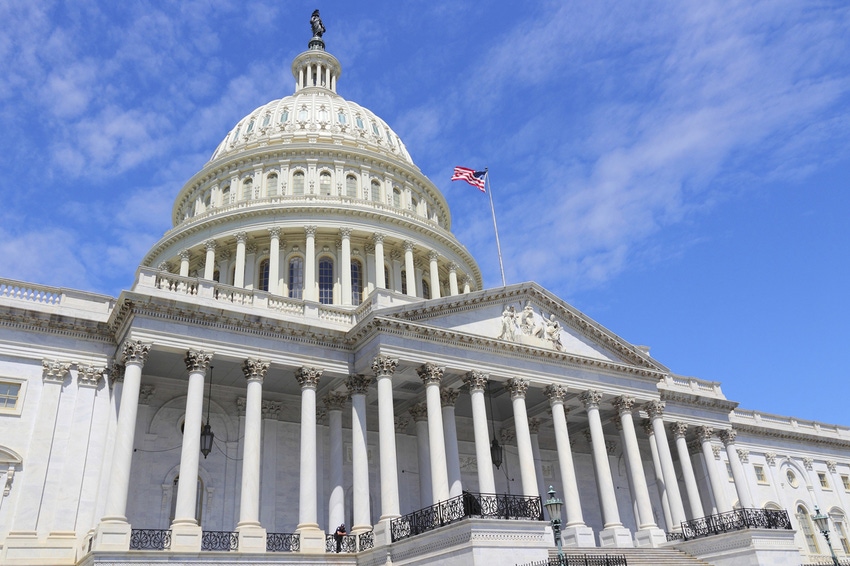House Democrats roll out $3 trillion in HEROES Act funding bill to respond to pandemic.

House Democrat leaders on Tuesday released their latest proposal for $3 trillion in COVID-19 assistance -- the Health & Economic Recovery Omnibus Emergency Solutions Act (HEROES Act) -- which allocates aid for the struggling biofuel industry and livestock sectors.
The agriculture provisions included compensation for euthanized livestock that can’t be processed into the food supply due to COVID-19-related packing plant capacity reductions. It is estimated that as many as 10 million hogs may need to be euthanized between now and September.
The act also expands direct payments to livestock farmers who have suffered severe losses as COVID-19-related market disruptions have caused the value of their livestock to plummet. Livestock groups, including the National Pork Producers Council (NPPC) and the National Cattlemen’s Beef Assn. (NCBA), have called for the removal of payment caps on agricultural direct aid offered under the Coronavirus Aid, Relief & Economic Security (CARES) Act.
The House package also offers increased funding for animal health surveillance and laboratories, which have been tapped to perform COVID-19 testing during this human health emergency.
"U.S. pork producers are facing an unprecedented financial and animal welfare crisis," said Howard "A.V." Roth, NPPC president and a hog farmer from Wauzeka, Wis. "These provisions represent a critical lifeline for hog farmers struggling to weather this storm. We urge Congress to come together quickly on final legislation that includes these provisions."
Ethanol producers, who were left out of the CARES Act and the U.S. Department of Agriculture’s response to allocating those funds, were included in the Renewable Fuel Reimbursement Program in the HEROES Act.
Specifically, the HEROES Act would authorize USDA to provide $45 cents/gal. of ethanol produced from Jan. 1 through May 1, 2020. Producers forced off line for one or more calendar months during this time would qualify for the same credit, based on half the volume produced during the corresponding month or months in 2019. The aid reflects appeals submitted by farm and biofuel leaders, as well as calls from bipartisan champions in the House and Senate, Midwest governors and 70 mayors across 10 states.
“Over the course of this pandemic, half the biofuels industry was forced off line, sending shockwaves through the entire agricultural supply chain,” Growth Energy chief executive officer Emily Skor said. “The HEROES Act offers a sorely needed beacon of hope for biofuel workers, our farm partners and thousands of rural communities struggling to stay afloat.
Renewable Fuels Assn. president and CEO Geoff Cooper said the program represents a “potential lifeline for the 350,000 men and women whose jobs depend on a healthy and vibrant ethanol industry. This program would lend a crucial helping hand and ensure that ethanol producers are able to participate in the economic recovery from COVID-19.”
Cooper noted that the ethanol industry is experiencing the worst economic crisis in its 40-year history, with roughly half of the industry’s capacity off line today. Nearly 70 ethanol plants are completely idled, and another 80 facilities are operating well below normal output rates.
“When an ethanol plant shuts down or reduces production, it destabilizes the entire rural economy,” Cooper said. “Jobs are lost, farm commodity demand and prices plummet, supplies of vital co-products like distillers grains and captured [carbon dioxide] evaporate and the nation’s drivers are denied lower-cost, cleaner-burning fuel options at the pump.”
The bill also offers $50 million to support beginning farmers and ranchers with financial, operational and marketing advice in this difficult market.
House majority leader Steny Hoyer (D., Md.) confirmed that the House of Representatives will meet at 9:00 a.m. May 15 to consider the relief package. Votes will continue late into the evening due to safety precautions.
House speaker Nancy Pelosi (D., Cal.) and other top Democrats will also push through a House rules change that will allow proxy voting and remote hearings. There had been bipartisan talks between Hoyer and minority leader Kevin McCarthy (R., Cal.) on the issue, but the two sides haven’t been able to find a compromise. Democrats now say they will move ahead with a rules change anyway.
The House Rules Committee will meet Thursday to approve the plan, which will allow lawmakers to cast votes remotely for colleagues who can’t travel to Washington, D.C., amid the outbreak.
About the Author(s)
You May Also Like




.png?width=300&auto=webp&quality=80&disable=upscale)
